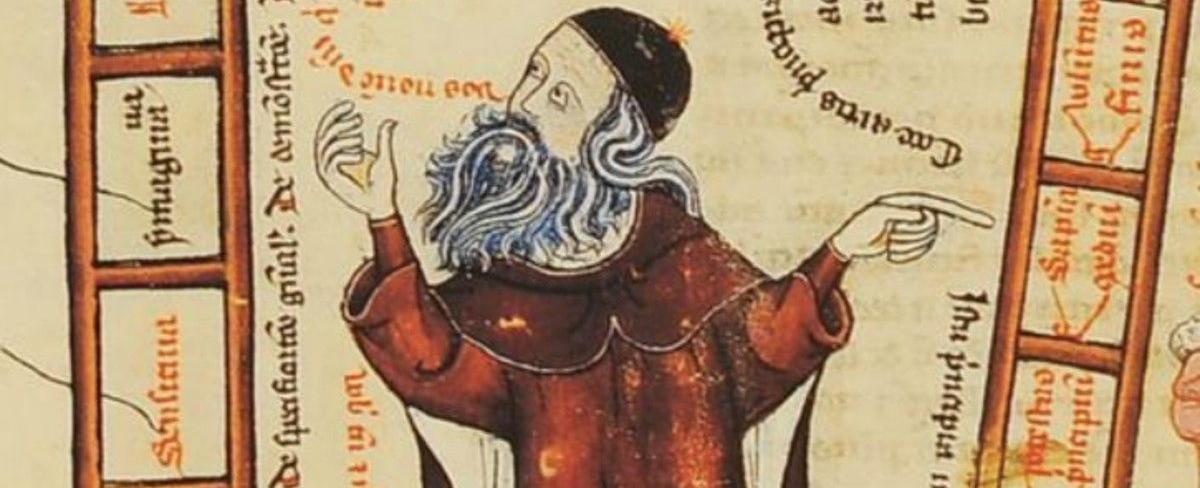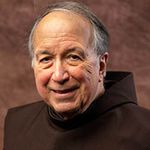Blessed Ramon Llull: Secular Franciscan Committed to a Multicultural Mission

On June 30, the Franciscan family honors the memory of Blessed Ramon Llull, a Secular Franciscan scholar committed to mission to the Islamic world (1232-1316).
An accomplished poet, troubadour
Llull was born into a wealthy family on the island of Mallorca in 1232; his father was a knight in the army that had conquered the island from the Arabs two years previously. Llull grew up in a multicultural environment. Educated as a courtier, he became an accomplished poet and troubadour, and companion and seneschal to the future king James II of Mallorca. Although married in his twenties, Llull continued to court many ladies.
A profound religious conversion
In 1263, however, he experienced a profound religious conversion and determined to give his life to God’s service as Saint Francis of Assisi did; he eventually joined the Brothers and Sisters of Penance (The "Third Order" of St. Francis—today called Secular Franciscans).

Scenes from the life of Ramon Llull from a 14th-century manuscript. The middle panel captures Llull's devotion to Mary; he was a strong exponent of her Immaculate Conception, and, in fact, some scholars think he coined the term.
Quest for a unified system of knowledge
Llull devoted the remainder of his life in quest of a unified system of knowledge ("the Art") that could bring Christians, Muslims, and Jews together in God’s Truth. A prolific writer (over 250 works) in his native Catalan, as well as Arabic and Latin, Llull made extensive contributions as a missionary, mystic, philosopher, poet, and scientist.

The sanctuary of Cura atop Puig de Randa, the highest point on the island of Mallorca, where Llulll spent a number of years as a hermit where he worked out the vision of his "Ars." The present monastery and guest house date from the 17th century.
Extensive travels and missionary trips
He traveled widely to promote his vision, including missionary trips to North Africa. The Council of Vienne (1311) finally acted on his proposal that Christians planning on evangelizing people of other faiths should study Hebrew and Arabic.

Spectacular view from the site of the monastery of Miramar on Mallorca, where, in 1276, under the patronage of King James II of Mallorca, Llull founded a study center for friars preparing to engage in evangelizing mission to Muslims and Jews.
A final mission to preach the Christian faith
In 1314, at age 82, Ramon embarked on a final mission to preach the Christian faith in Tunis and was imprisoned; after his release in 1315 he was stoned by an angry mob in Bougie or Tunis. Although there was a tradition that he died as a result, and thus is venerated as a martyr, there is now evidence that he was rescued by local Christians and died early the next year, either on board ship returning home to Mallorca, or shortly after his arrival there. He was buried in the Franciscan church in Palma.

Statue in honor of Llull in Palma de Mallorca.
A fitting patron for people engaged in multicultural dialogue
Llull gained the title "Doctor Illuminatus" by his contemporaries, but his cutting-edge thought was often suspect. He was beatified by Pope Pius IX in 1847. Llull is a fitting patron for all those involved in dialogue today between the three great Abrahamic faith traditions.
The wisdom of Blessed Ramon Llull
Lord Jesus, I see many knights going to the Holy Land beyond the seas. . .thinking. . .they can acquire it by force of arms; but in the end all are destroyed. . .It seems to me that the conquest of the Holy Land ought not to be attempted except in the way in which You and your apostles acquired it, namely, by love and prayers, and the pouring out of tears and of blood.
Dominic Monti, OFM
Professor of Franciscan Research in the Franciscan Institute of St. Bonaventure University
Dominic V. Monti, OFM, is a Franciscan Friar of Holy Name Province (USA) and currently professor of Franciscan Research in the Franciscan Institute of St. Bonaventure University. He devoted the greater part of his ministry to teaching the History of Christianity, in particular the history of the Franciscan movement. He has contributed two volumes to the Works of St. Bonaventure series and is author of Francis & His Brothers, a popular history of the Friars Minor.

